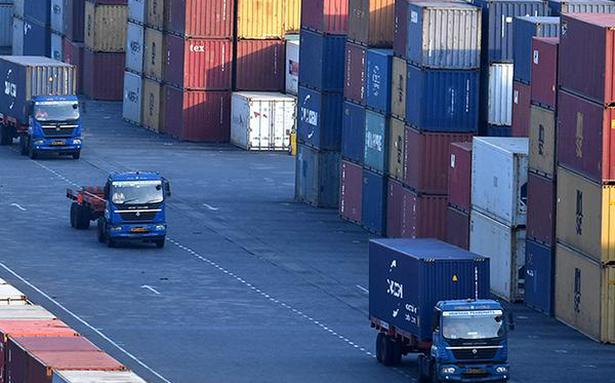Supply shortages from traders avoiding Russian crude worries about China’s COVID surge fueling demand rollercoaster
Supply shortages from traders avoiding Russian crude worries about China’s COVID surge fueling demand rollercoaster
Oil prices extended gains on Friday at the end of a third volatile week of trading after slow progress in peace talks between Russia and Ukraine raised the specter of a prolonged disruption in oil supplies.
Brent crude futures were up $1.14, or 1%, to $107.78 a barrel by 1003 GMT after rising nearly 9% on Thursday, the biggest percentage gain since mid-2020.
US West Texas Intermediate (WTI) crude oil futures climbed $1.24, or 1.2%, to $104.22 a barrel, contributing to an 8% gain on Thursday.
Both benchmark contracts were expected to end the week down more than 4% after trading in a $16 range. Prices have fallen from 14-year highs set almost two weeks ago.
The supply crunch from traders avoiding Russian barrels, faltering nuclear talks with Iran, dwindling oil stocks and worries about a surge of COVID-19 cases in China hitting demand have resulted in a rollercoaster ride for crude this week.
The volatility has turned players away from the oil market, which in turn is likely to increase price swings.
Despite battlefield setbacks and Western punitive sanctions, Russian President Vladimir Putin has shown little sign of backing down. The Kremlin said an agreement has yet to be reached after a fourth day of talks with Ukraine.
“President Putin does not seem ready to end hostilities,” said PVM oil market analyst Stephen Brennock. “This should ensure the energy complex remains well supported with plenty of room for further volatility.”
He also said rising US interest rates point to a stronger US economy, which could support oil demand.
RBC Capital analyst Helima Croft warned that Russia’s oil export losses are likely to prove permanent and barrels are tight to compensate.
Underscoring the tight supply situation, consultancy FGE said onshore product inventories in key countries are down 39.9 million barrels for this time of year compared to the 2017-2019 average.



